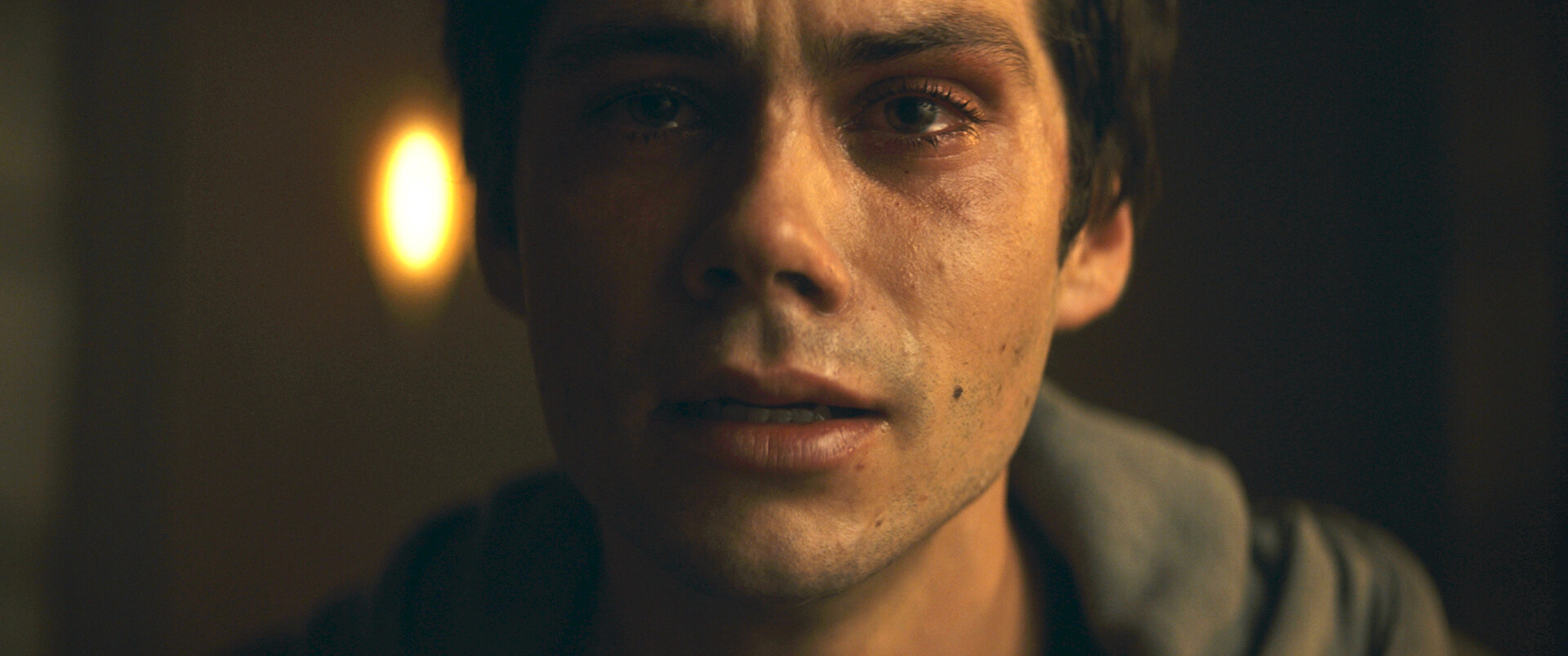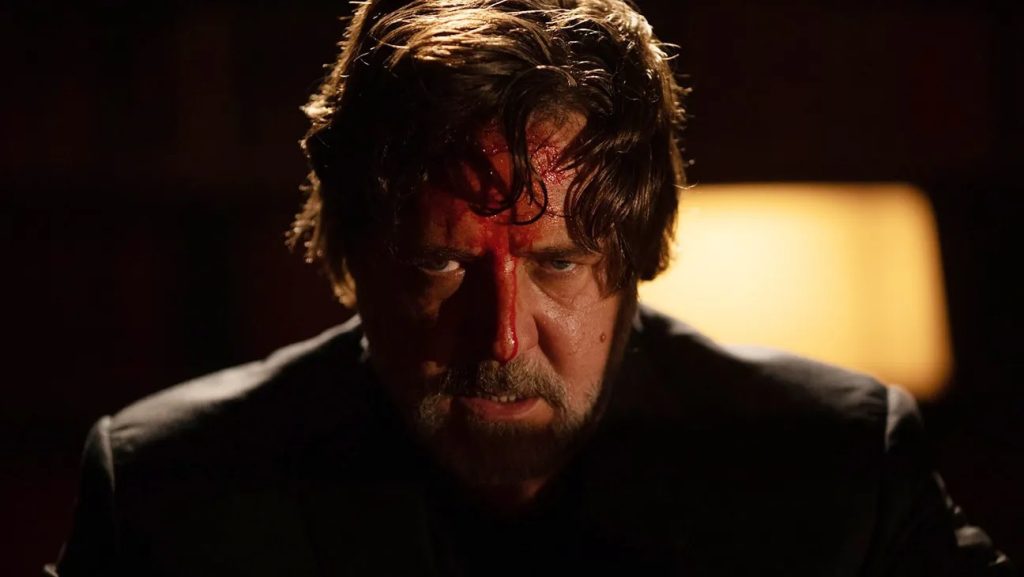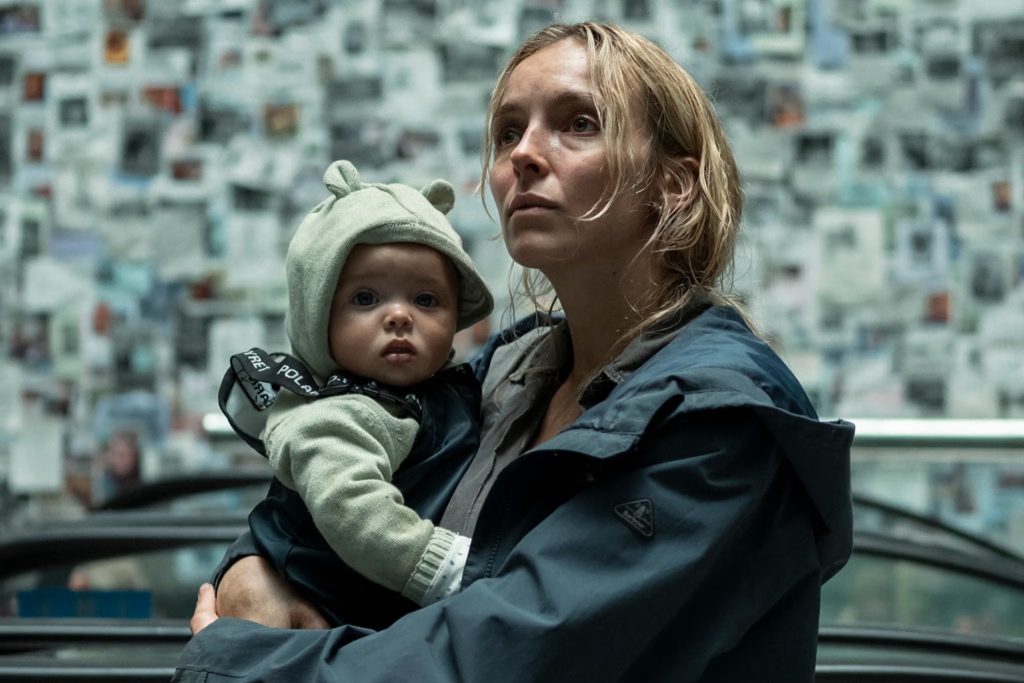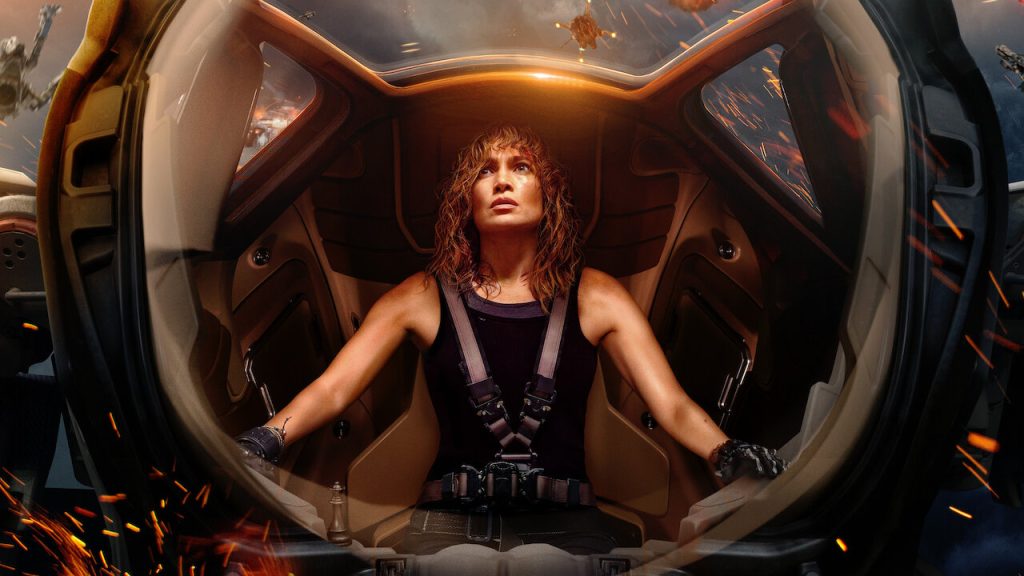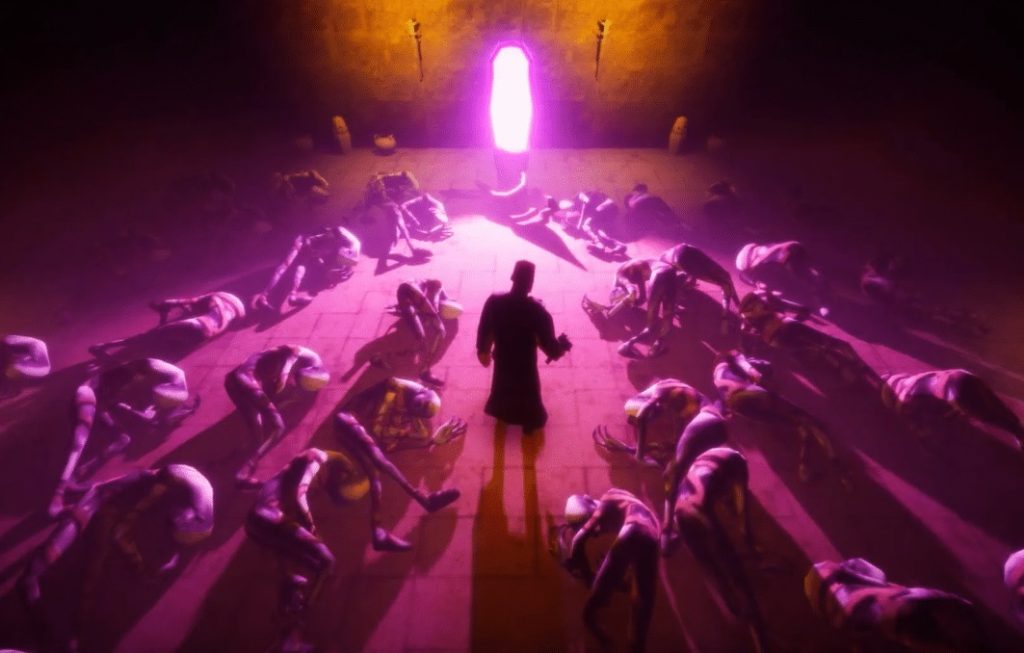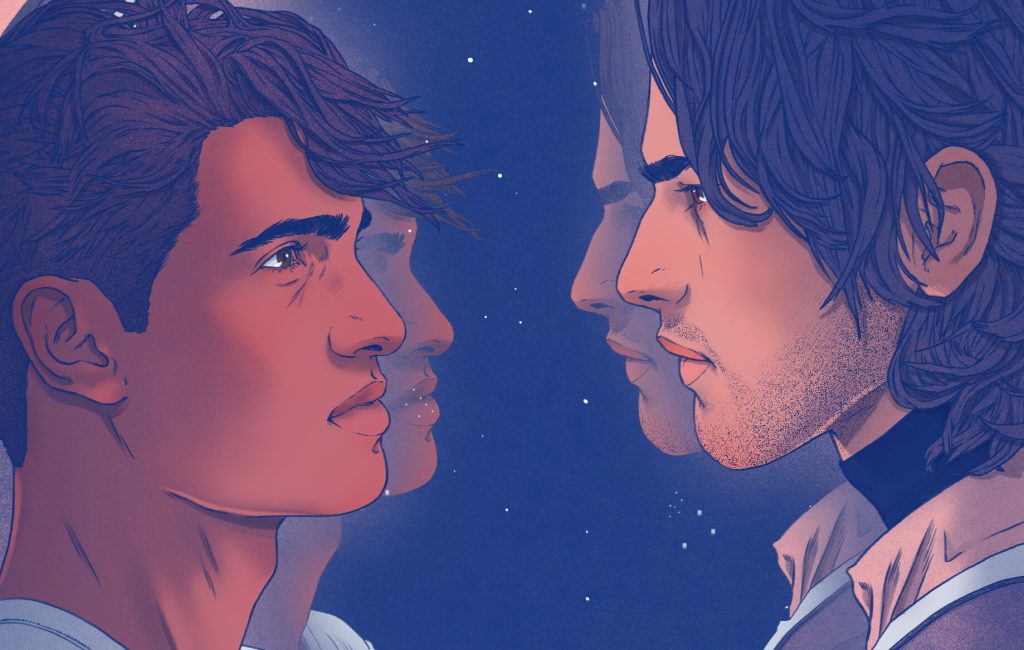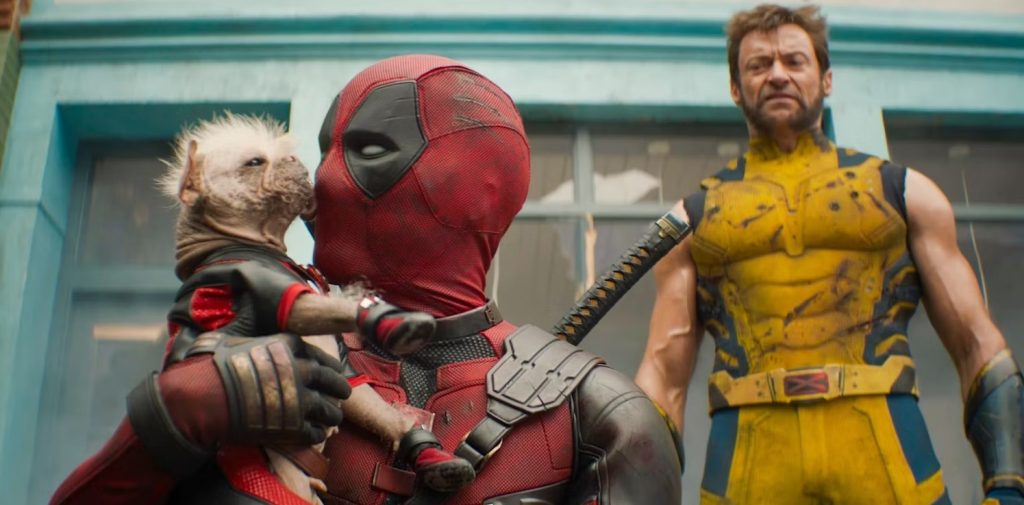Dylan O’Brien stars as Fred Fitzell, a man on the precipice of adulthood. With a new corporate job, a long-time girlfriend (Hannah Gross) pressuring him to define their future, and an ailing mother, Fred’s whole life is upended when a chance encounter triggers terrifying flashbacks to his high school years. As he attempts to piece together these fragmented recollections and figure out what is real, his mind begins to unravel. Past, present, and future collide in Christopher MacBride’s sophomore feature Flashback (formerly The Education of Fredrick Fitzell), which also stars Maika Monroe (It Follows), Hannah Gross (Joker, Mindhunter), and Emory Cohen (Brooklyn, The OA).
STARBURST spoke with writer-director Christopher MacBride about the nature of time and perception, the series of unfortunate events that plagued the film’s production, and the incredible force that is Dylan O’Brien.
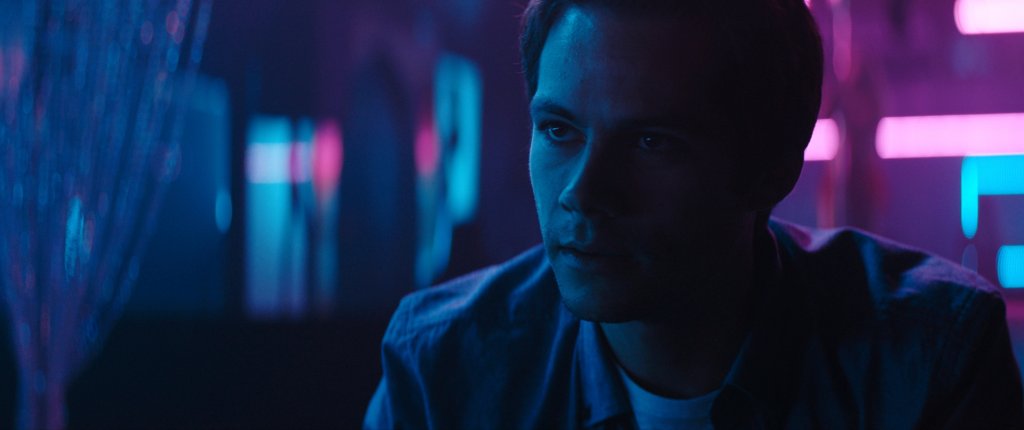
You must be very excited to finally have this film release, after the virtual premiere at Sitges Film Festivals, and theatres being shut.
MacBride: I’m so looking forward to people seeing it. In my mind, my dream way that this film would be experienced is for people to know nothing about it and just stumble into it by accident at 3 in the morning. Like, “What’s this movie with Dylan O’Brien?” and just not being ready for it. Those are some of my best film experiences when I was 14 or 15, finding a weird Fellini film in the middle of the night and having my mind blown. I hope that’s what happens with this movie.
Then in the morning, you’re not quite sure how much of it was real [laughs].
MacBride: You don’t know how true that is. I’ve had so many weird experiences like that! I don’t sleep very well; I’m an insomniac, so I have a lot of memories of finding weird black and white films in the middle of the night, and them mixing with my dreams and sort of waking up and being completely unsure of what part was the movie and what part was my dream.
In that vein, where did the idea for Flashback come from? Because that too has a very trippy, disorientating storyline.
MacBride: It was script I wrote a long time ago. It was really one of the first screenplays I ever wrote, and it went through a really strange process in my mind. When I was really young, like 20 or something like that, I wrote my first script. It was a crazy, 300-page manifesto of madness. It wasn’t even a real movie; it was just every idea I’d ever had for a movie just stuffed into these 300 pages. And then that script ended up spiralling out into different scripts, as I learned how to write. And one of the scripts it spiralled off into was Flashback.
The genesis of it was a couple of different things that all melded together, but the underlying essence was this concept that our perception of time as a linear thing – there’s a future, a past, and a present – and that this idea is something we’re taught when we’re very young. It’s an education that’s forced upon us by our parents. One of the very first things we learn in our formative first few months is how to align our existence and our thinking with our parents’. And one of the things that we learn is consequence, and consequence is only taught to you by an understanding of past and future: “If you do X, Y will happen. If you touch the hot stove, you will be burned.”
And that knowledge is dependent on an understanding of future and past. It was something that I was interested in, just the concept that along with colour and shape, and language, and these primal things we learned, we are also taught to perceive time in a certain way. And I also thought about, if you could cleanse your system of those things and experience time as it’s meant to be experienced, what would that be like? It was this very esoteric, philosophical sort of concept that I then had to work hard to find a narrative to wrap around that. It became this high school student named Fred who takes this drug that cleanses him of his education about how time is supposed to be perceived.
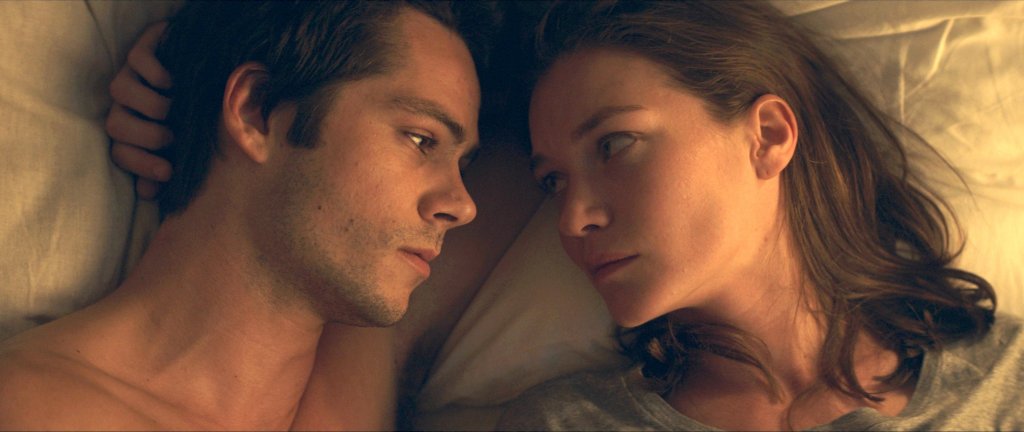
What made this transitional time between your young adult years and the passage into “proper” adulthood the right anchor for a story about time and consequence?
MacBride: I think that was probably to do with my own personal situation. When I wrote the script, I was just in that place where you’re officially becoming an adult in a weird way; where you’re taking on a real job, deciding if you’re going to buy a place to move into, deciding whether you’re going to commit to your partner, that sort of grown up thing that you put off – or at least I put off – for as long as you can. And then you’re faced with this moment of realisation that, “Oh God, I’m a real grown up now.”
I think that’s the moment when many people become overcome with a sense of nostalgia for their younger years. And when we would talk about it, Dylan O’Brien would refer to it as the quarter life crisis. That time when you hit 30 and you start realising that this is real and thinking about how far you’ve come, and how long-ago high school was, thinking about this whole other person you used to be. And then what I did – and what the character does – is that in lieu of facing the future as an adult, you go into the past and latch onto it. That just became the most logical thing for this character, that Fred didn’t want to grow up and face being an adult, so he latches onto this mystery from high school and tries to find out what happened to this missing girl by tracking down his old high school friends. It seemed to be the cleanest anchor for this story.
Is that feeling of a quarter life crisis something that you and Dylan O’Brien connected over?
MacBride: Absolutely, yeah. I’m a bit older than Dylan, but he definitely identified with that. When I first sent out the script to producers and sort of put it out into the world, I told people, “This is a really strange script. I don’t know if it will get funding, I don’t know if it’s makeable.” And I was really surprised how quickly actors in particular responded to it. And Dylan was the first one who immediately identified with the character. He did zero in on that feeling of taking stock of where you are in your life. There are these signposts in life and turning 30 is one of them, right? When life slaps you in the face and reminds you that you’re getting older, and are you doing what you’re supposed to be doing? He definitely identified with that.
At what point in the creative process did you realise that Dylan O’Brien was the person for the job?
MacBride: There were a couple of different moments that I remember very vividly. First of all, he responded to it right away. Sometimes you send these things out to so many actors and you just go through so many, and Dylan was super early in the process. I knew immediately that, in a lot of superficial ways, he had the right look about him that I knew he’d be able to pull off being 30 and also being in high school.
And then once I knew he was interested, I watched everything he had done, and I could see that he was a real actor. He knew how to create characters, he knew how to create parameters for those characters, I could see all the tools were there. And then meeting him and talking about the script with him, I felt really good because he got it; he totally understood the character. And as you said, it’s a very complicated, sort of surreal film. So, imagine reading the script when you don’t have the visuals, it’s even more complicated. It’s not something that everybody could understand, let alone identify with. So just the fact that he got it gave me a lot of confidence.
But I still wasn’t 100% sure; and the weekend before we started shooting, I was hit with this panic. I thought, “Oh God, what if Dylan is terrible?” [laughs]. It was completely illogical, but I just worry about everything. We’d put so much work and time and money into it, and it hit me that if he can’t pull this off, it’s all for nothing.
But I remember the moment exactly… It was the very first set we did, the first scene, first shot, and I called action on the first rehearsal. And as soon as the word “action” came out of my mouth, I just saw Dylan’s entire body language change, and he transformed into Freddie. It was just instant relief for me.
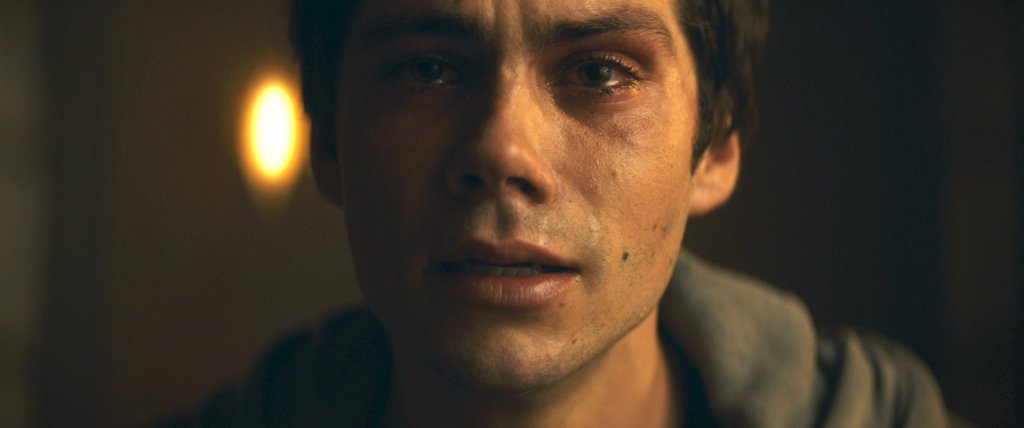
And it turned out that, if there’s one thing that I never worried about during the making of this film, it was him. He surpassed my expectations every single day, every single scene. It’s one of the things I’m most excited about for people to finally see this movie, is just for them to see how good he is. He’s never really done a movie like this, and he absolutely pulls it off and goes to so many different, very emotional places. I was incredibly impressed by him, and I know the movie wouldn’t have worked without Dylan.
And it’s my understanding that Flashback had quite a complicated road to production, right? What were the biggest obstacles?
MacBride: I would say that the road to production was complicated, but it was mostly the regular kind of complication. You know, finding financing, having to replace an actor who dropped out at the last second, those kinds of things happen a lot. What was unique to this film though, was the actual production. We had just about every problem you can imagine. Again, all films have problems, it’s normal, but we really had them. We would lose locations the day before we were supposed to shoot there, and we’d be using our lunch breaks to drive out and scout new locations for that same day. We just had every issue you could possibly have.
There’s a scene where Dylan is in the bathtub with Karen, played by Hannah [Gross], and when we were shooting that scene, there was some special effects person who had to make the bubbles in the bathtub. You’d think that’s a very simple, straightforward thing – but they put the wrong stuff in the bath and basically poisoned them! Both Dylan and Hannah had a bad reaction to it. Just things like that, every day there was something.
And we had people on the crew who had done 50 movies, and even they were like, “I’ve never seen this much bad luck!”. It was a constant battle but again, thank God for Dylan. If Dylan hadn’t been as dedicated and as good as he was, it literally wouldn’t have gotten done. It’s not just something nice to say – he saved our butts a hundred times.
Flashback is a strange film because it’s an independent film yet is very special effects-heavy in certain places. And that’s an unusual combination because it’s super hard to have a lot of special effects with a budget this small. So we had to get creative in post-production, because we ended up with about a tenth of the budget we needed for special effects; we had to reimagine so many scenes that were meant to play out a different way, but that we couldn’t afford. We just had to get creative, which extended post-production and the edits. Just a real domino effect of things going wrong.
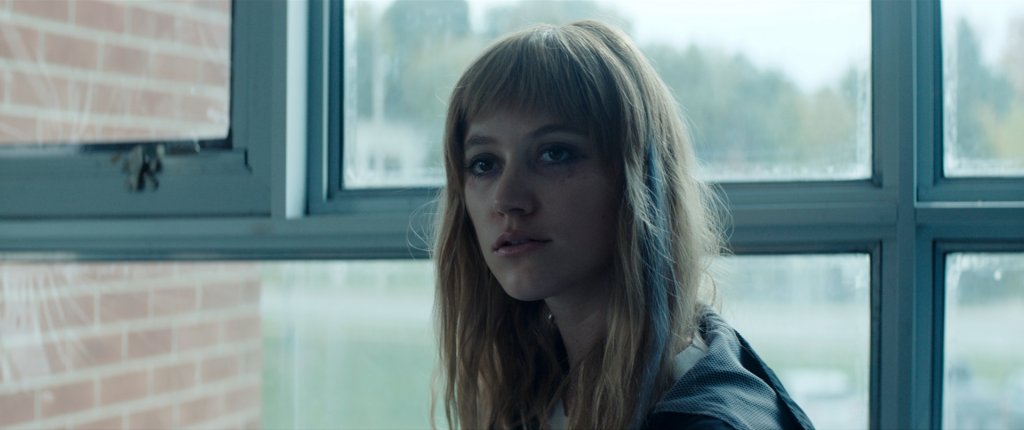
And it’s funny, I forget about it. It’s like my wife says about giving birth: you forget how bad it is once you see the baby. But then someone reminds you, and you remember just how terrible and painful labour is. Just you speaking about this right now has reminded me how painful it was [laughs]. It was a tough, tough movie to pull up.
It’s so funny you say that because, from an outsider’s perspective and just watching the movie, you’d never guess that there was compromise or last-minute changes. It all seems very deliberate.
MacBride: Good, that’s good to hear. I found that even when I had a scene where what I intended when I wrote the script wasn’t going to work, I felt like I was always able to get the same point across another way. It’s a cliché but it was a lesson for me: it’s really all about the narrative and being clever with the editing. And who knows, maybe it’s better this way than it would have been if we’d had more money.
What were some of your inspirations in terms of the visual storytelling? I imagine a lot of the concepts in the script are difficult to translate onto the screen.
MacBride: Anything by David Lynch is a big influence for me. His style of storytelling, his embrace of surreality, and the fact that he doesn’t need to explain everything in his films – I really admire that and wish I could stay true to that the way he does. He has this insane discipline about not talking about his films or explaining them, and I don’t know how he does it. But he has this quote, “life doesn’t give you an explanation at the end, so why do people expect movies to do that?” And why can’t we accept a movie experience that befuddles us and makes us feel strange things that we don’t totally understand? That’s art, that’s what abstraction is. I always found that inspiring.
When I was reading the script and editing, deciding how much of the concept to explain and how much to leave to the audience, I would think of Lynch and try to have his restraint. I’d remind myself that I don’t need to explain every little thing that’s happening, that I can just let the audience go with it and experience it, and either enjoy the parts where they are confused and sucked down a rabbit hole or react violently and hate it.
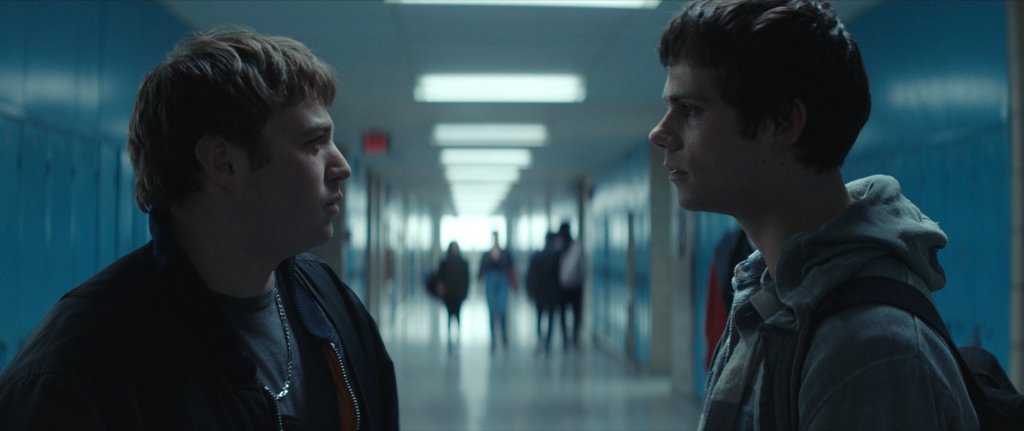
It’s like Alfred Hitchcock’s Psycho – it’s obviously a classic but it’s hilarious how in the last ten minutes, it’s like everyone sits down and explains what just happened in the movie. I do tend to like things that are more surreal; I mentioned Fellini, who was a huge influence on me, and Gaspar Noé, Darren Aronofsky, Lars von Trier, just people who make things that don’t necessarily fit into exact genres. Those are the kinds of experiences I like, when you go to a movie, and you don’t know exactly what’s going to happen just from the look of the poster.
Speaking of posters and marketing, your film got a rename – how do you feel about The Education of Fredrick Fitzell versus Flashback?
MacBride: I always sort of knew that the title was going to get changed by somebody, just because it’s very wordy and doesn’t really roll off the tongue. And then there was a lot of discussion with our distributor about what the new name should be, and after a lot of back and forth, we compromised on Flashback, which I’m still getting used to. It kind of feels like a pretend title for the film [laughs].
But it’s appropriate and it makes sense, with the flashbacks that happen in the film. I get it. But it’s a strange thing when you work so long on something so personal and then the film marketing machine starts changing things, that can be a really ‘that’s my child out there that you’re messing around with’ sort of feeling [laughs]. Again though, that’s every movie. They all go through this.
And lastly, I don’t know if you’ll remember but you did an interview with STARBURST back in 2013 for The Conspiracy, and you said that whatever you do in the future, you just don’t want to repeat yourself. Does that still hold true?
With every film I want to create an individual world and then go into that world. So yeah, I just don’t want to repeat myself and keep creating worlds I guess.
MacBride: Wow. Yeah, I think so! I definitely don’t remember saying that, but I must have. It’s something I always think about with different projects, that’s my one guiding light. I’ve never wanted to make the same film twice, or even anything close to the same film twice, or maybe even the same genre twice! It’s hard because the film industry wants you to keep doing the same thing over and over again. Like, you’re the guy who does trippy drug movies? Let’s send him more trippy drug scripts. There’s been many times when I’ve had to tell people that I’m never going to do another movie about conspiracy theories, or time travelling drugs, so please stop sending me that stuff.
I say this now but watch, two years from now I’ll be doing Flashback 6.
Vertigo Releasing presents Flashback on digital platforms June 4th, 2021.

